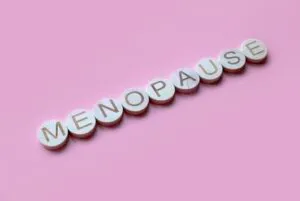 It’s that time in life when women are taught to dread menopause. Menopause often presents itself in stages; perimenopause, menopause and post-menopause. Menopause means that you can no longer reproduce. Your body no longer releases an egg at ovulation, allowing for pregnancy. The effect of menopause is different from woman to woman. Some women feel debilitated by the symptoms of menopause, while others feel that it is merely a minor hindrance. Menopause can occur naturally as the body ages or from an oophorectomy.
It’s that time in life when women are taught to dread menopause. Menopause often presents itself in stages; perimenopause, menopause and post-menopause. Menopause means that you can no longer reproduce. Your body no longer releases an egg at ovulation, allowing for pregnancy. The effect of menopause is different from woman to woman. Some women feel debilitated by the symptoms of menopause, while others feel that it is merely a minor hindrance. Menopause can occur naturally as the body ages or from an oophorectomy.
There is no guaranteed age of menopause; some women begin the process in their thirties, while others won’t see a sign of it until their fifties. The state of your health can be a variable as to when menopause is triggered. There are variables like environment and genetics as well.
Menopause is not a simple process. Some women don’t realize they are in perimenopause, as the symptoms are vague. During perimenopause, the ovaries are not working like they did when you were most fertile. Some women who are on oral contraceptives may not notice it at all. This is a dangerous time for some women, because pregnancy is still possible, as ovulation is unpredictable.
Menopause can affect multiple organ systems. When estrogen levels drop, bones become more brittle, and developing osteoporsosis is a greater possibility. Loss of estrogen can also be responsible for improper functioning of the immune system and neurological system.
The cardiovascular system also relies on proper estrogen levels to function as it should. Estrogen helps create nitric oxide which causes relaxation of the arteries. The American Heart Association warns that women are at a higher risk of cardiovascular disease after menopause.
There are symptoms of menopause that are frustrating, like hot flashes, night sweats, moodiness, and increased appetite or cravings. These symptoms often lead to other issues like weight gain, less motivation to exercise due to lack of quality sleep. It can feel like the world is caving in on you.
Many women choose bio-identical hormone replacement therapy to protect themselves against the symptoms and risks of menopause. Replenishing your hormones levels can restore vitality and energy. Working with a practitioner that specifically works in the field of hormone replacement is important. Your hormone functions affect your entire body and quality of life. Be sure to seek treatment from an expert in the field of hormone replacement. Ask questions, learn about potential side effects, and keep a journal. This is a journey, but you get to write your own story. You can choose to cope with the symptoms and risks of menopause or you can choose to make life the best possible by reaching out to those that specialize in keeping your quality of life restored.






